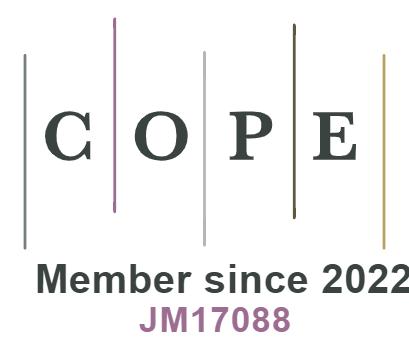Contents
Chair

Prof. Hamid Reza Karimi
Editor-in-Chief of Complex Engineering Systems
Department of Mechanical Engineering, Politecnico di Milano, Milan, Italy.
Speaker(s)

Prof. Damien Ernst
Montefiore Institute, Université de Liège, Liege, Belgium
Damien Ernst is a full professor at the University of Liège, and a researcher at the Montefiore Institute of Electrical and Engineering and Computer Science Research Unit. His research encompasses a broad spectrum of topics related to energy system optimization, grid management, and renewable energy integration, with a focus on leveraging artificial intelligence and advanced control techniques to address the challenges of the energy transition towards sustainability. He has co-authored more than 300 research papers and two books. Throughout his career, he has been actively engaged in numerous successful research collaborations with the industry. He has also won numerous awards for his research, including the prestigious 2018 Blondel Medal. Since 2021, he has also been the Chief Scientific Officer at Haulogy, a company that publishes (intelligent) software for the energy sector. He has also been a visiting professor at Télécom-Paris since 2021. He is regularly consulted by industries, governments, international agencies and the media for his deep understanding of the challenges of the energy transition. Beginning in 2024, Prof. Ernst has begun to focus some of his research efforts on the use of artificial intelligence in the defense sector.
Talk topic: Reinforcement Learning for Electrical Markets and the Energy Transition
Abstract: In this talk Prof. Damien Ernst will present several applications of reinforcement learning techniques for electrical markets and the energy transition. He will also describe the challenges in terms of intelligent decision-making faced by the electrical power industry which is experiencing significant changes.

Dr. Arash Moradinegade Dizqah
University of Sussex, Brighton, United Kingdom
Dr. Arash M. Dizqah currently holds the position of senior lecturer (Assoc. Prof.) in Mechanical Engineering at the School of Engineering and Informatics. Before his current role, he was a lecturer (Assist. Prof.) and post-doctoral research fellow for about five years at Coventry University and the University of Surrey, respectively. Dr. Dizqah is a member of the Dynamics, Control, and Vehicle (DCV) Research Group and director of smart vehicles control laboratory (www.sveclab.com) at the University of Sussex.
He got his first degrees in electrical engineering from Sharif University of Technology, Tehran, Iran, in 1998. He pursued his PhD in control engineering from Northumbria University, U.K., successfully completing it in 2014. Prior to embarking on his doctoral studies, Dr. Dizqah used to work in industry for nearly a decade as an embedded systems developer and architect, specializing in both software and hardware aspects.
Dr. Dizqah's research interests are centered around control and optimization, with a focus on applications in robotics and transportation, and renewable energy systems. His expertise lies in the real-time implementation of energy-efficient controllers for electrified vehicles, connected and autonomous vehicles and robotics. He and his team in SVeCLab has been developing a real-time robot-in-the-loop simulator, named RobiL, to test distributed algorithms in a close-to-reality environment.
Talk topic: Energy Management Strategies: My Journey from Renewable Energy Systems to the Fleet of Electrified Vehicles
Abstract: In this talk, Dr. Dizqah will explain energy-efficient control strategies and their applications in engine control, path planning and energy management of renewable energy systems and electrified vehicles. Nonlinear economic model-predictive control (MPC) would be explained as the main technique to solve these problems. Unlike the normal MPC strategies, an economic version of the strategy dynamically finds an equilibrium point and controls the system to stay in its vicinity. He will also introduce a developed hardware-in-the-loop simulator, named RobiL, which is useful to evaluate the performance of distributed control strategies in real-time using seamlessly multiple small-scale robots or their digital twins.
| Time (Belgium, UTC+2) | Speakers | Topics |
| 2:00-2:10 PM | Prof. Hamide Reza Karimi | Welcome Remarks |
| 2:10-2:35 PM | Prof. Damien Ernst | Reinforcement Learning for Electrical Markets and the Energy Transition |
| 2:35-3:00 PM | Dr. Arash Moradinegade Dizqah | Energy Management Strategies: My Journey from Renewable Energy Systems to the Fleet of Electrified Vehicles |
| 3:00-3:20 PM | All | Discussion (Q&A) |
Moments



Presentation












